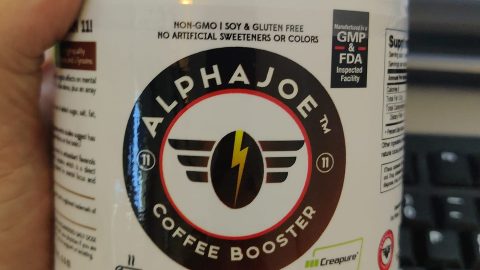High Intensity Interval Training (HIIT) has become very popular recently, but what is HIIT training? Who will benefit from it? What’s the difference between HIIT and interval training? Is it superior to aerobics? In this show we answer those and many other questions about HIIT training with researcher Dr. Abbie Smith-Ryan.
Podcast with Dr. Ryan can be found HERE.
Will Brink is the owner of the Brinkzone Blog. Will has over 30 years experience as a respected author, columnist and consultant, to the supplement, fitness, bodybuilding, and weight loss industry and has been extensively published. Will graduated from Harvard University with a concentration in the natural sciences, and is a consultant to major supplement, dairy, and pharmaceutical companies.
His often ground breaking articles can be found in publications such as Lets Live, Muscle Media 2000, MuscleMag International, The Life Extension Magazine, Muscle n Fitness, Inside Karate, Exercise For Men Only, Body International, Power, Oxygen, Penthouse, Women’s World and The Townsend Letter For Doctors.
He’s also been published in peer reviewed journals.
Will is the author of the popular e-books, both accompanied by private members forum access , Bodybuilding Revealed & Fat Loss Revealed.
You can also buy Will’s other books on Amazon, Apple iBook, and Barnes and Noble.





I couldn’t agree more Will. Excellent points.
Thanx Jim 🙂
thanks will! always a wealth of information.
This is how I’ve done it for the past two years:
I use a treadmill. I know it’s not recommended but I’ve got a treadmill. I follow the ‘Peak Eights’ protocol by Dr Mercola. 10 minutes at a walk to warm up. Then set the incline to 9% grade and the speed to 9mph. While straddling the belt and watching the timer I jump onto the belt at a run for 30 seconds, then jump back to straddling the belt for the next 90 seconds, then repeat. The peak 8s meant a total of eight 30-second sprints with eight 90-second rests.
I have a Polar Heart Rate monitor. I’m 56yrs old. So 220 minus my age means my max heart rate should be 164. Usually by the 5th or 6th sprint the monitor says I’m at 160 or so. Lately the 8 sprints does not seem enough and I’ve gone to 10. When I first started this a couple years ago I was at 6% grade, 6mph sprints.
As a kid I was a competitive power-lifter. At age 18, 150lbs my three lifts totaled 1200lbs. My favorite was the deadlift: personal best 450lbs. After high school I had no access to weights and never went back to lifting seriously. Now I do Hahn’s Slow Burn (TM).
Instead over the past 30 years I’ve been a distance runner. Last Spring I was set for my 10th buckle at the Laramie double marathon: 52.6 miles. However I’d done nothing but Peak 8s three times a week for the Winter. And found in Laramie that I’d lost strength and running ability. Around mile 35 I was cut from the race due to my slowness.
My point is to do well at marathons I need to run a lot. To do well at weight competitions I’d need to lift a lot. The HIIT workouts on a treadmill don’t do more than make me better at doing HIIT on a treadmill. It doesn’t much spill over into other endeavors.
kevin
What you have hit on Kevin is the The Specificity Principle which essentially states that to get better at a thing, you need to do that thing most of the time. One want to be a better runner, they should focus on running, and so forth. Other forms of exercise can benefit to be sure, but they should be secondary to what it is you’re trying to improve. The most obvious example might be one does not run to improve their 1RM on the bench press, as an extreme example, and so forth.
open for free seo servicess
Hi, can you please add reference for her study that showing the advantage of hiit / sit training vs aerobic activity for caloric output and fat burn, thanks
My views (based on evidence) are changing as it relates to fat loss. HIIT training certainly has benefits. Fat loss, if that’s your goal is looking like its more and more (you guessed it Will) hormonal.
Control your insulin levels and you drop fat. I’m whispering now (it appears independent of exercise and caloric intake).
I am happy to go through the studies that provide evidence for this, but not to the sound of crickets – I’ve done that. It’s not rewarding. Will, I will be happy to discuss this on the BBR members side.
Exercise is generally not related to fat loss. HIIT (and resistance) training may be the two sole exceptions. The studies I have seen don’t utilize either one of these categories of “exercise”.
I do know that if you want to drop fat, control insulin. Of course there is more to this but it’s outside of the scope of this post.